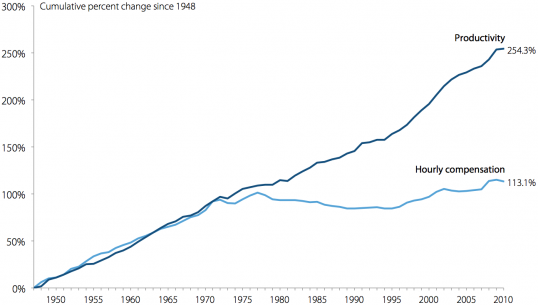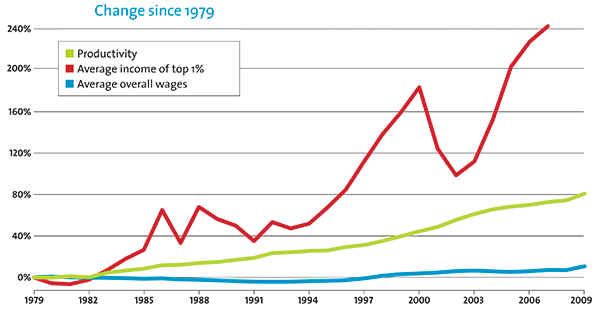I originally had somewhat more ambitious plans for my 2017 wrap up, but well, the end of the year is just about here so instead I’ll just type for a couple hours, hit publish, and call it a day.
Part of the motivation is that it’s felt like a good time again to write up some of what I’ve been thinking about in technology trends. In 2006, while I was hip-deep in Web 2.0 work (and my blog output had already fallen into the abyss where it remains today) and I wrote up a 5 year tech projection. I ended up revisiting it 5 years later and you know what, didn’t too badly. What’s interesting reviewing it now is the a few of the things that I had missed were actually on the cusp then and happened shortly after. I didn’t do a direct followup, but did do a 2013 Review in Tech writeup – the most interesting things that happened that year weren’t in consumer/SV tech scene (which was deep in their Uber for X/app obsession at the time).
In 2014 I started collecting some Emerging Tech notes that I never published. That might be worth checking out (there are some late 2017 notes as well) – these seemed to have caught the tech zeitgeist a couple years in advance but it’s a bit fuzzy on how these will play out. This year, I also started collected some notes on a future-trend focused Tumblr (it’s not private per-se, just not very publicized/widely read, although the same can be said for this blog at this point – just pissing into the wind). For 2018, I’m hoping to both publish more and to better rationalize where/how I’m publishing what I’m tracking.
In many ways 2017 was a trash fire, so before I dig into it, I did want to start off Charlie Stross Reasons to Be Cheerful style. In just about every measure of human development and global, now is the best time to be alive. For those that are interested in visualizations, the World Bank’s 2017 Atlas of Sustainable Development Goals is simply fantastic (Hans Rosling style, RIP) and again, shows the marked improvements we’ve made. If you’re into listicles, this recent article 99 Reasons 2017 Was A Great Year highlights some nice things. I started a Twitter list today that I hope to add to dedicated to accounts focused on sharing useful metrics/trends on the state of the world.
Now enough of that, and into the weeds. Per usual, I spent a lot of time reading things this year (example) – too much on Twitter and Reddit, but on the whole, more worthwhile things than not – I spent a fair amount of time digging through writings of the socio-techno-political variety, lots on crypto-economics and other financial topics, and rounded off by the usual geek topics. Also, a lot more YouTube than usual. This marked year 4 of semi-nomadicism although I may spend some more time settled to try to get through a backlog of housekeeping. Being out and about in different parts of the world helps give some perspective (places visited for the first time included Colombia, Cuba, Iceland, Greece, Kazakhstan, and Brazil).
Like many others, I spent much of the end of last year and the beginning of this year reading and thinking about the state (and fate) of liberal democracy in the modern world. I collected some of that into a doc Sensemaking in the Age of Social Media. While most of the participants haven’t realized it yet (or are disingenously denying it), we are now living in the age of weaponized information – memetic warfare. This is as cyberpunk and dystopian as it sounds, and it’s worth giving a shout out to sci-fi authors. The easiest way to understand where we are is to re-read Gibson, Sterling, Stephenson, Egan, Stross, Doctorow et al with the lens of what we are experiencing. It’s also worth thinking about how unprepared humans and human societies currently are against the future-shock mechanization of the modern infosphere (hyper-personalization and filter bubbles, bot/troll manipulation and other social signal hacks, infoglut and overload, clickbait and yes, fake news). These are second order effects that web pioneers and SV techies were unprepared for and misincentivized to address (who knew that driving engagement for advertising revenue would bring down free society, wah wah). This of course made it’s way into the news zeitgeist this year (that the modern media landscape is a key part of this dysfunction is an irony that is sadly lost to most, I believe). A smattering of headlines: Former Facebook executive: social media is ripping society apart, Facebook must wake up to its disastrous potential – it has the power to subvert American democracy, What Facebook Did to American Democracy, Facebook Wins, Democracy Loses, Can democracy survive Facebook? – now this is all a bit unfair to Facebook, after all Twitter is perhaps even more of a trash fire (and @realDonaldTrump will probably start WW3 on it next year). Anyway, before I go full rant – there aren’t easy answers, but it’s clear that we must fix this. These are design failures – some driven purposefully by misaligned economic incentives and externalized risk, and some by the short-sightedness and failings of designers, engineers, and product managers. IMO, if we can not fix this, humanity will probably not survive.
Over the course of the year I tried to crystallize a line of thought – that there were no problems humanity faced that could not be solved, if we could solve the problem of how to cooperate in rational self interest. Not such a deep insight, and not pithy enough yet (still a work in progress, obviously) but good enough as a direction to point one’s mental energy and efforts towards. (For those in doubt, and as a benchmark for this, nominal global GDP is about 80T USD – look at any looming existential crisis that we face and ask how much actual effort/cost it would take to address, mitigate, or fix.)
Also tying into perhaps the next topic, on cryptocurrencies. Or perhaps, more accurately a discussion on distributed trust network, or resilient distributed consensus in the presence of byzantine adversaries, or about censorship-resistant transactions, or incentivization structures for said networks.
Yes, we are currently in a bit of a mania phase of a bubble at the moment. One that hasn’t, but will inevitably pop (although I wouldn’t pack it in until the institutional money gets a dip – this might not even be the big bubble yet in the same way that 2014 wasn’t). At the end of it though we’ll be where we were at the end of the Internet bubble – with a whole bunch of new toys to play with that with the power to reshape society. Hopefully, having gone through it once already, we can try again a bit wiser.
A few interesting recent reads that might spark some ideas:
The Blockchain Economy: A beginner’s guide to institutional cryptoeconomics
The great ICO freeze is beginning. What does it mean for crypto in 2018?
Co-evolving the Phase Shift to Crypto Capitalism by Founding The Ethereum Commons Co-op
OK, this is getting long, and there are so many other things I want to cover.
I’m a big fan of Ramez Naam’s talks and projection on energy production costs and trends. Here’s a recent one from October:
I’ve previously linked to a fascinating writeup on AlphaZero and DeepMind. Here’s a Year in Review of AI and Deep Learning in 2017.
I’ve been thinking a fair bit about the “4chan problem” – there’s the whole Gamergate to literal nazis thing, but just repeated over, and over, the emergence (and maybe this is the actual new part, the ability to cause damage) of a generation of sociopathic man-children. The Mirai botnet came out of some socially maladjusted Minecrafters (a fascinating read; followup, background, interesting related color on how fucked IoT security is) and say, the recent swatting incident (follow @briankrebs for fascinating infosec/cybercrime insights, @radleybalko for reporting on police brutality, militarization, and how messed up criminal justice and civil liberties are in the US).
OK, well, enough of that. Perhaps a bit less on the tech insights than a more planned essay would have been. My resolution for the coming year will be to figure out a better way of collecting and publishing my research on an ongoing basis. Maybe not quite gwern style but I think that a lot of what I come across and read about might be useful to others, and the act of publishing would probably encourage better organization/clear thinking. Another resolution: trying to waste less time on the Internet.

